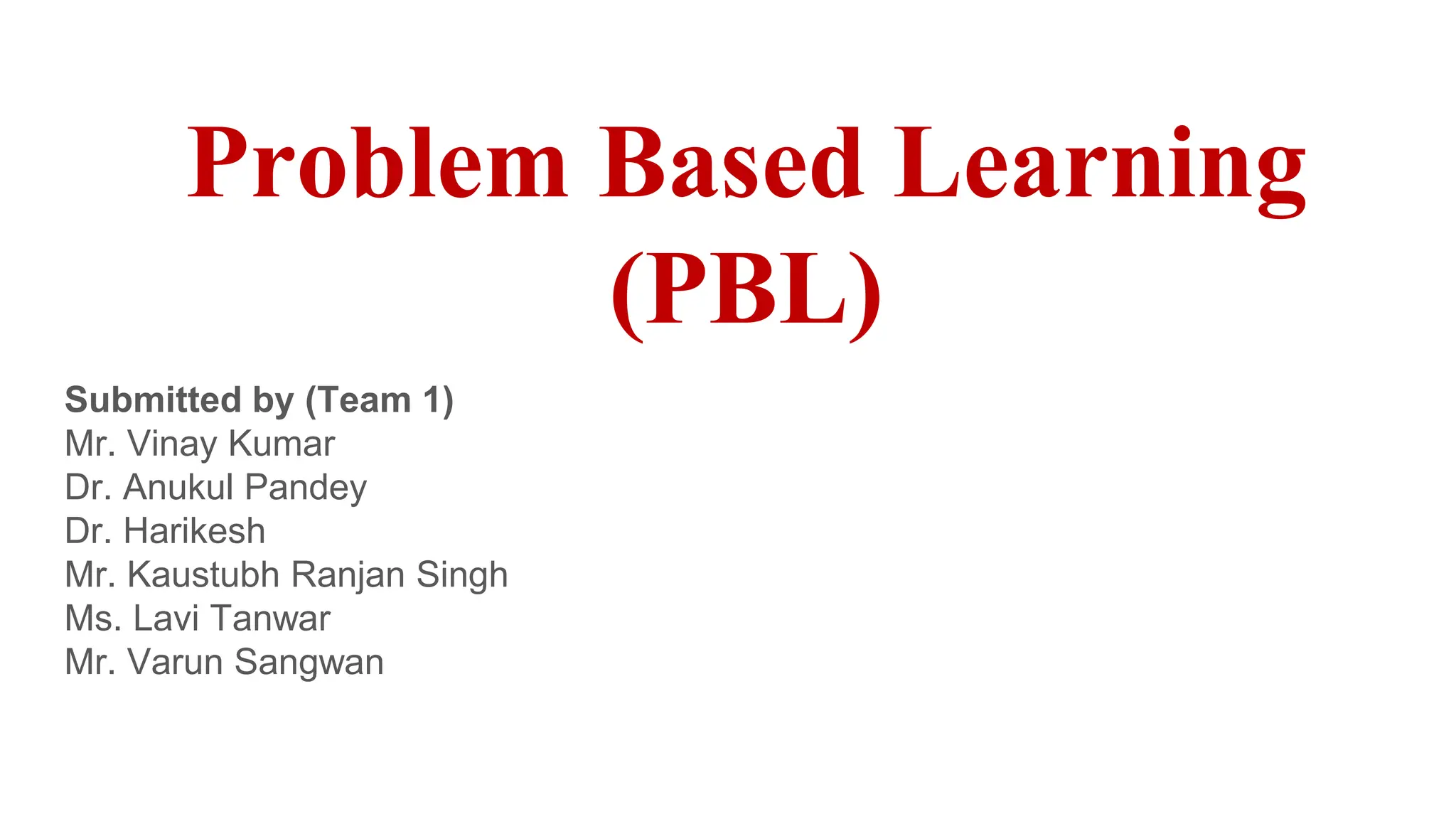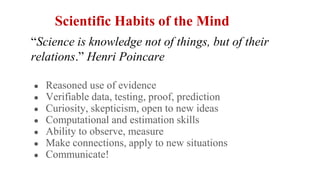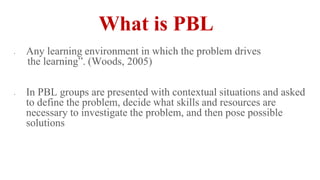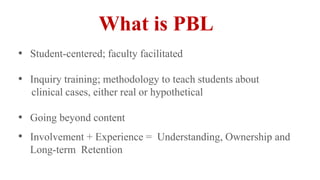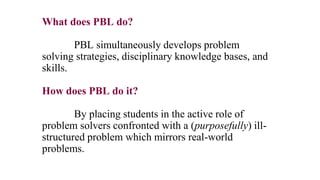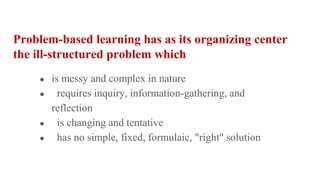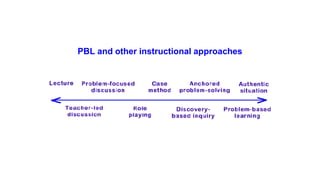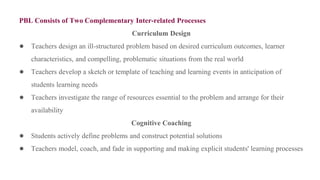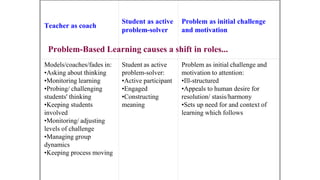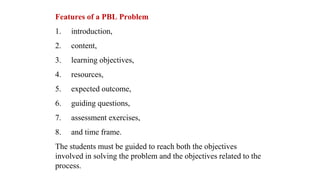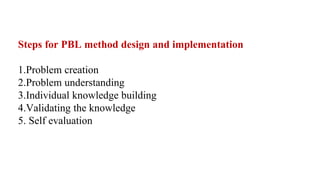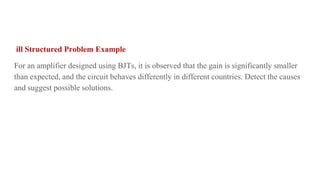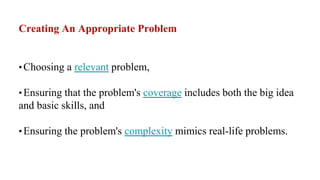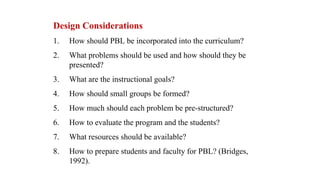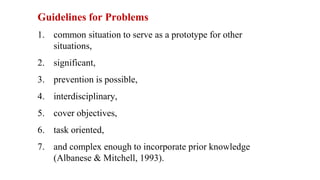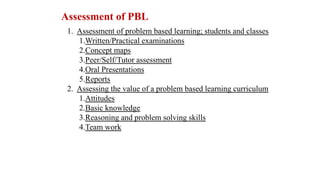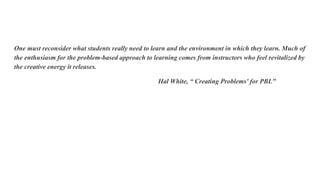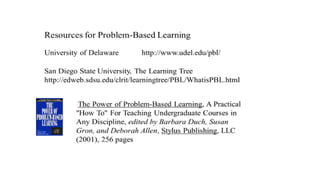PBL is a student-centered pedagogy where students learn through the experience of problem solving. In PBL, students work in collaborative groups to solve an ill-structured problem. The teacher facilitates the process, while students determine what they need to learn in order to solve the problem. This allows students to actively develop problem-solving strategies, disciplinary knowledge, and skills. PBL shifts the teacher's role to a coach and places students in an active role as problem-solvers. It uses complex, real-world problems to motivate students to identify and research learning issues in order to find solutions.
